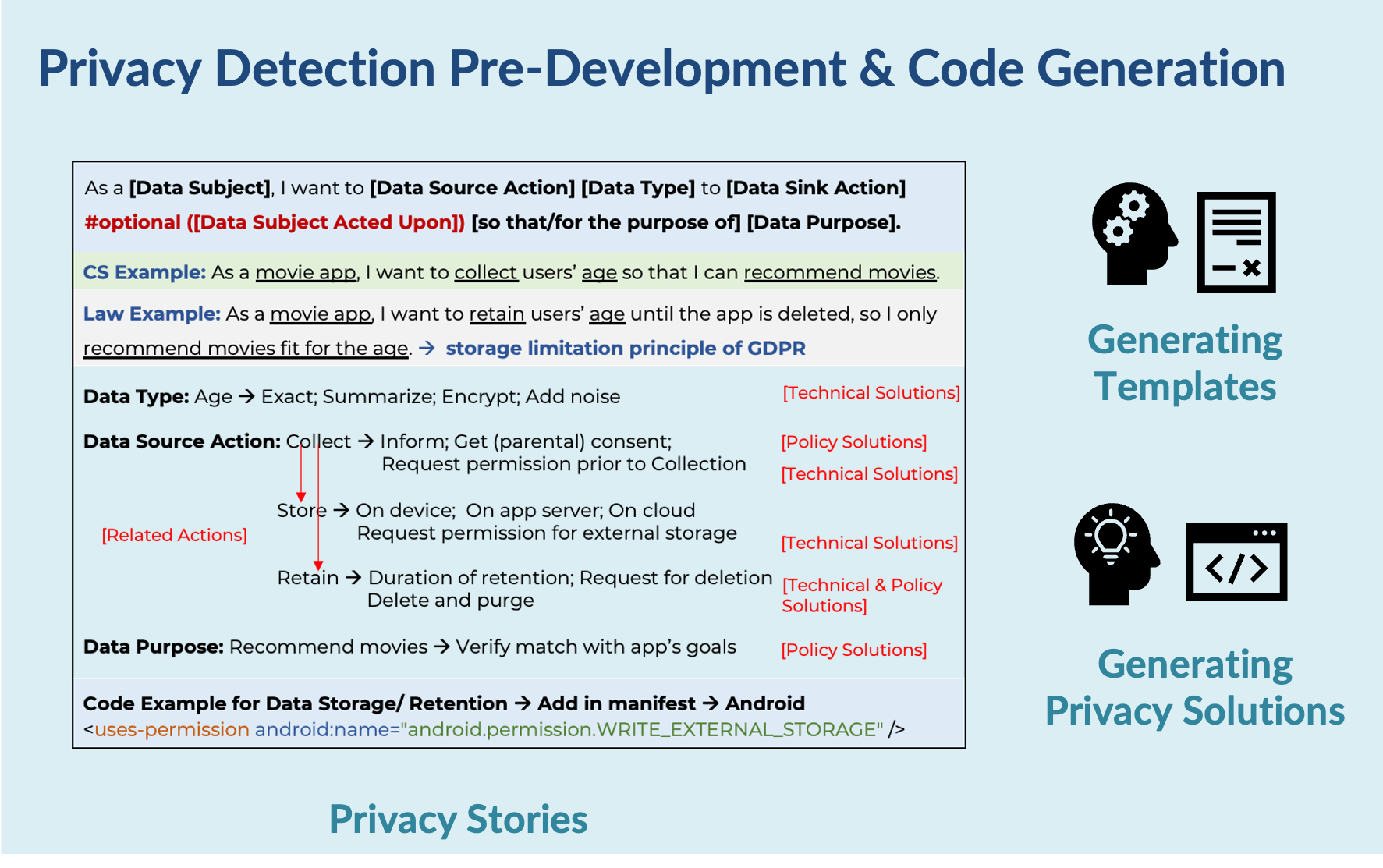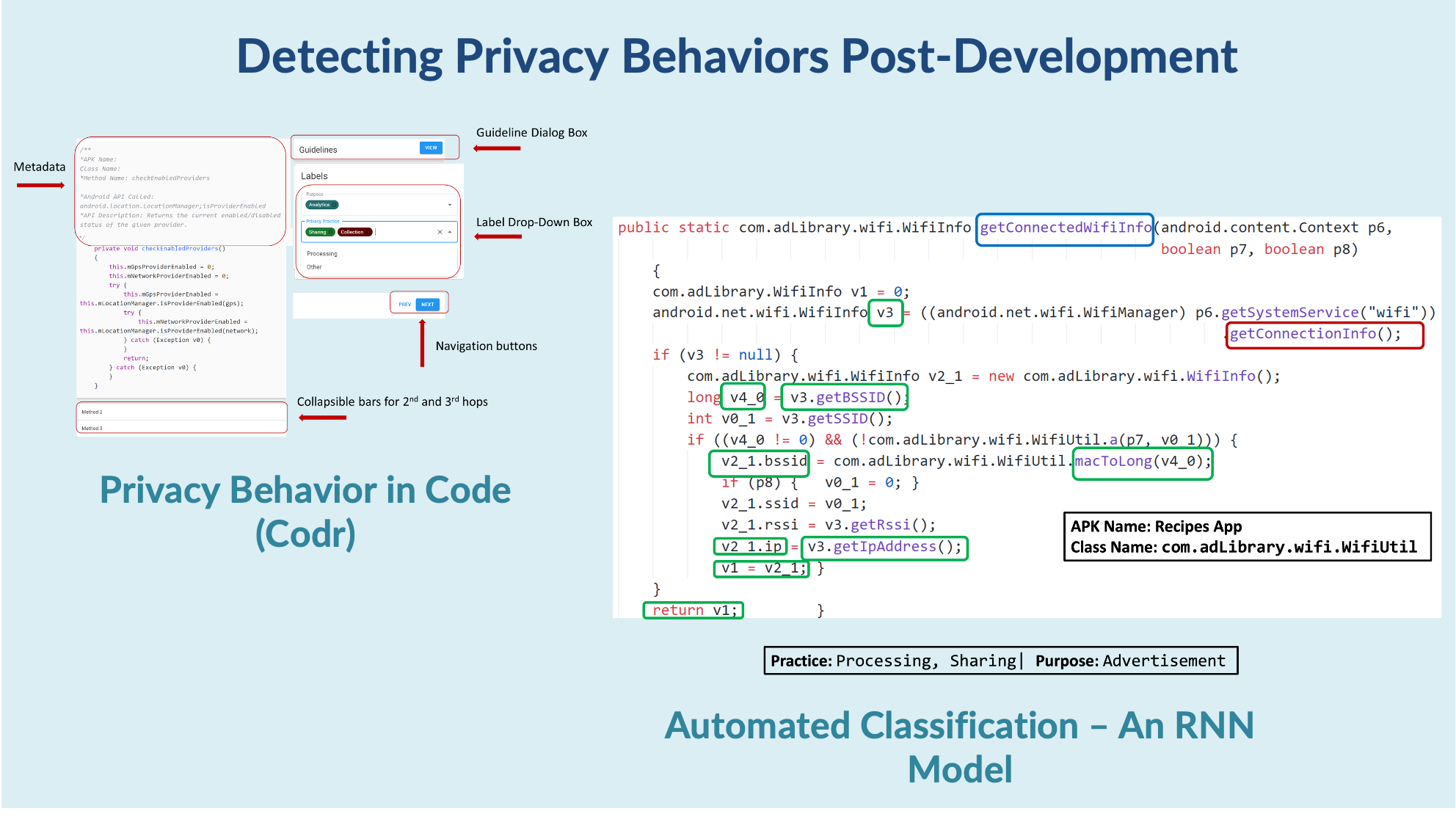Privacy Engineering - Regulatory Compliance Lab (PERC-Lab)
In PERC_Lab, we work on the privacy engineering and regulatory compliance research which are one of the emerging areas in Software Engineering. We leverage requirements engineering, natural language processing (NLP), deep learning (ML), Large Language Models (LLMs) and privacy by design techniques to tackle the challenges of privacy of software systems, mobile applications and smart devices (i.e., the Internet of Things, Cyber-Physical Systems or wearable devices). We perform research from three different angles: (1) End-user (2) Software analyst and developers and (3) Regulatory bodies. We develop frameworks, methods and tools to solve some of the problems software analysts, designers and developers face in terms of protecting the privacy of the end-user and complying with the existing and new privacy-related regulations and developing privacy-preserving software systems or applications.
PERC_Lab long-term goal is to develop tool-supported methods, algorithms, and frameworks for minimizing privacy violations, breaches, and risks in software applications throughout their software development lifecycle. One of our goals is to provide developers with systematic approaches and tools to help create privacy-preserving applications that are compliant with current and emerging privacy regulations and best practices, thus protecting the privacy of individuals throughout the software development lifecycle (SDLC) from requirements to code generation. Another goal is to develop techniques that help users better understand the privacy implications of the IoT, mobile, and web applications they use.
Keywords: Privacy; Requirements and Software Engineering; Privacy by Design; Legal Compliance; Neural Machine Translation; Recurrent Neural Network; Large Language Models, Natural Language Processing; Mobile Applications; Internet of Things; Cyber-Physical Systems.
Research Grants
- The 2023 NSF CAREER Award - Amount: $674,804.00 USD.
- The 2021 Google’s Privacy-related Faculty Award - Amount: $70,000 USD
- The 2022 UMaine Faculty Research Fund - Amount: $8,000 USD
- The 2021 UMaine EMPOWER Mentee Award - Amount: $10,000 USD
- The 2020 UMaine AI Initiative - Amount: $60,000 USD
- The 2018 Google Faculty Research Award - Amount: $$32,285 USD
- Other grants and awards




